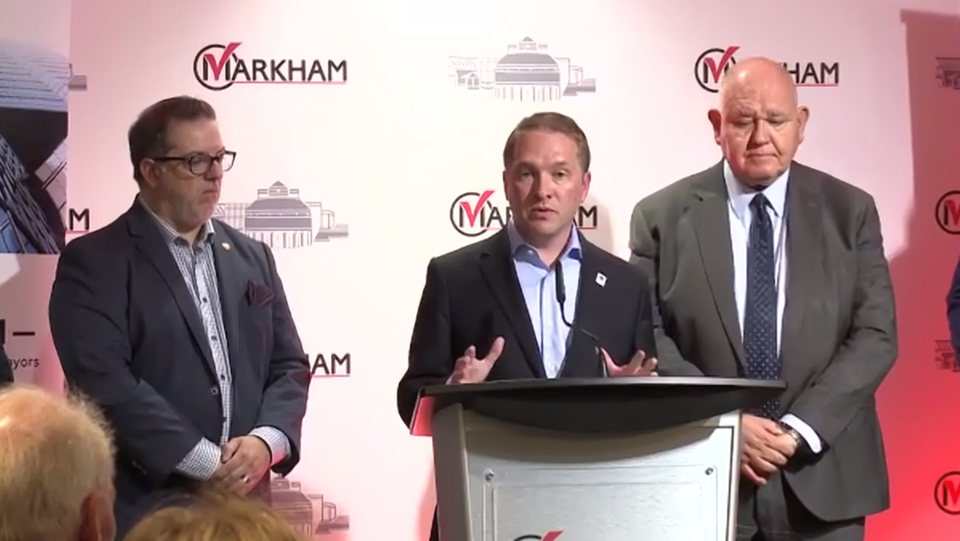EDITOR’S NOTE: This article originally appeared on The Trillium, a Village Media website devoted to covering provincial politics at Queen’s Park.
Amid growing concerns over increasing homeless encampments, Ontario's big city mayors called on the provincial government Friday to launch a review of mental health laws to determine whether involuntary treatment for those with mental health and addiction issues should be expanded.
The call followed lengthy discussions between members of the Ontario Big City Mayors (OBCM) caucus at a meeting in Markham.
The original motion the mayors were set to consider Friday called for legislative changes to allow for a "system of mandatory community-based and residential mental health and addictions treatment" and suggested the provincial and federal governments invoke the notwithstanding clause to prevent likely constitutional challenges and ensure "that individuals in need are able to access treatment."
What they eventually agreed on at the end of their meeting was a softened version.
"There are diverse opinions in our caucus," London Mayor Josh Morgan said at a press conference that was delayed by more than two hours due to the discussions.
Morgan said the mayors' ask is to "immediately review and update" the Mental Health Act and the Health Care Consent Act in consultation with medical professionals and municipalities to determine whether mandatory treatment is the "right thing to do."
"We have no position on whether that's the case at this point, but we do think that there are discussions in the review of the Mental Health Act and the other relevant acts that probably include a discussion on that and that it should be experts, the provincial government to determine whether that's right for the province of Ontario," he said, adding that the acts are outdated and "do not reflect the current realities of the crisis in our streets."
Barrie Mayor Alex Nuttall, one of the mayors who introduced the original resolution for consideration, said he was happy with where the mayors landed.
"When I sit there and make calls for the City of Barrie asking for more mandatory treatment and rehabilitation, I don't know what those lines look like in terms of where those lines need to be created, what the pathways are into it, what pathways are out of it," Nuttall said. "What you're seeing here in this motion is a call for the provincial government to determine whether they need to strengthen what already exists in terms of mandatory care in this province."
He said the outstanding questions include if and when such a review will happen and when they'll find out whether mandatory treatment provisions are "strengthened" or left as is.
Friday's meeting followed the Canadian Civil Liberties Association (CCLA) writing an open letter to the big city mayors calling on them to reject the original motion. The association called the proposed use of the notwithstanding clause “shocking."
It also came after Brampton Mayor Patrick Brown's unsuccessful attempt to get widespread support at Peel regional council for his proposal to launch a pilot project where people with mental health and addiction challenges are subject to involuntary medical care.
The big city mayors also reconfirmed their commitment to their "Solve the crisis" campaign, which includes calls for appointing a single ministry and minister to "address the full spectrum of housing needs as well as mental health, addictions and wrap-around supports."
Other calls following their meeting included for the province to take intervener status in court case decisions "that restrict the ability of municipalities to regulate and prohibit encampments" and develop a "fully funded and resourced range of compassionate care treatment programs that strengthens the system of community-based and residential mental health and addictions treatment," Morgan said.
Grace Lee, a spokesperson for Premier Doug Ford, said "people are rightfully frustrated with encampments."
"We shouldn't have individuals squatting on public land. As the premier has indicated, we are exploring all legal tools available to the province to restore public safety by clearing these encampments and moving individuals into safe, stable housing."
—With files from Alan S. Hale
